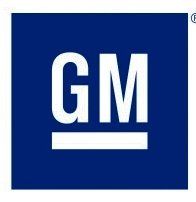CPI, PPI, Conflicting Data sends the market cautiously downward
Last night, I'm relaxing from a day of arguing with people over how to make admiralty brass tubing, and I flip over to CNBC. They are running a recap show of 2006. Basically, they are lining up one no-name, not important pundit after another who is talking about how great the market is going to be in 2007 and how the PE (price to earnings) ratio of 16 of the combined Dow components is below the 27 PE ratio we saw in 2001 and how the market needs to move higher. They are also playing down the inflationary pressures, energy, and other issues and are calling 2007 another 1995, harkening to an extended boom. They pumped up the idea of continued higher earnings and large corporate profits.
Well, I'm tired of conflicted pundits trying to make a buck by hyping a market that they are already long. There are serious problems in our economy which are coming to bear and such upbeat analyses only confusing people and expections need to be tempered.
First of all, the long term price to earnings ratio for the Standard & Poor's 500, not the Dow Jones Average, is 16 or 17. By saying that the PE Ratio is low, they are implying that the Dow components should trade at a premium to the broader market. This may be the case, although, I would argue that the Dow is not the best predictor of performance, and how much of a premium is a question.
Secondly, the implications that we will see continued high corporate profits is working under several broad and perhaps incorrect assumptions. Most importantly, I believe that there will be wage inflation in a variety of sectors of the economy, reducing corporate profit margins. With unemployment continuing to be low, hitting 4.4% in October, the power, through employee shortgages in certain segments of the economy, will swing back over to labor and corporations will be forced to increase wages and benefits to retain and hire employees.
Third, there is another assumption that these employees and workers in our economy will spend the majority of any potential wage increase which will in turn spell higher revenues and higher profits for the corporation. Unfortunately, this assumption is misguided. The savings rate previously at -0.8%, that's right negative, moved up to -0.2% in October, indicating that people are trying to pay off debts and saving more of their paycheck. Although the holiday season may prove optimistic and consumers will spend, I believe that after the holidays, the pressure to save will return. Due to continued weakness in the housing sector, Americans tolerance for debt will be tempered by their concern over the static value of their main asset.
The United States still has a major debt hangover, funded by overseas banks, a higher dollar due to one of the higher interest rates in the developed world, and a housing and credit boom. The last six months have seen the markets trying to correct and sleep off some of that hangover, but there is still a ways to go and some concerns lurk on the horizon.
If the dollar continues to slide on its own or as a result of a Fed rate cut, the current account defecit doesn't become smaller, and/or commodity prices don't temper in spite of falling US demand, foreign investors will shift their dollars into Euros or other currencies, making it more difficult for Americans to borrow and fund a large current account defecit. Continued high commodity prices may keep inflation high and as a result, keep the Fed from cutting rates which won't alleviate pressures.
After all that doom and gloom, there are couple things that may be in favor of the US economy that may stave off a recession or large correction.
Due to the high corporate profits we may see a pickup in business investment and capital spending. I believe that investments in telecom, energy, commodities and technology are possible, and the continued strength of the commercial real estate market means that corporations in some parts of the country are still investing in or leasing real estate. Several private equity deals focused on Office and Commercial REITs could be an indication of continued strength in that sector. Lastly, the frenzied and continued pace of M&A and private equity buyouts makes the financial sector a good profit source, and potentially means that some of those mergers may produce more value. Further, with profits where they are and cash being so cheap, corporate America may see a drastic restructing. Further, when these Private Equity shops have squeezed the savings out of financial engineering and cost cutting, they will need to invest in order to provide adequate returns that will please their LPs.
We need to proceed into 2007 with caution. We definately don't need to get up on TV about a booming market in 2007 with complete abandon.



